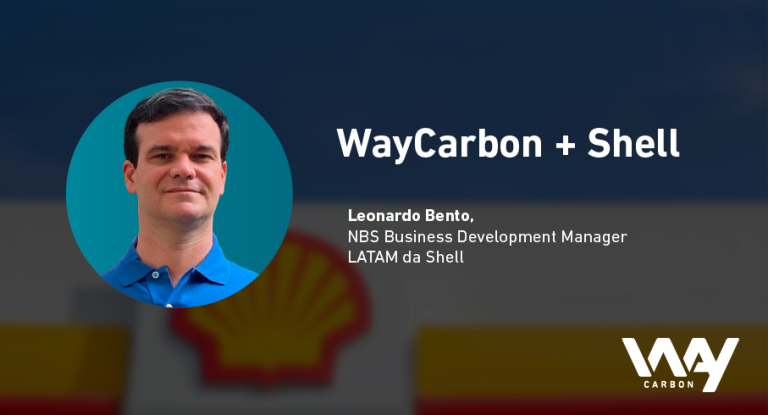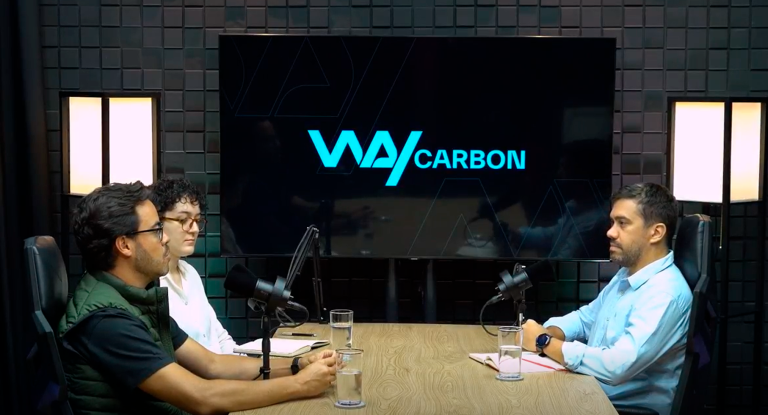Interview: Shell pursues Net Zero with support from nature-based solutions

Founded in London in 1897, Shell is one of the largest energy companies in the world. It operates in 70 countries and employs around 92,000 people. The company’s current position is to use technology and innovation to meet the global demand for energy in a responsible manner.
In its 2021 sustainability report, Shell highlights its commitment to becoming a Net Zero company. To this end, the plan is to reduce greenhouse gas (GHG) emissions from operations, capture remaining emissions through technology, protect natural carbon sinks, and offset unavoidable emissions, both by Shell and its customers.
And offsetting GHG emissions involves, of course, the generation and purchase of carbon credits. For this reason, the company felt the need to assess the carbon market in greater depth, counting on the support of WayCarbon in this challenge.
WayCarbon’s consulting area developed a study and presented it to Shell in four workshops, held throughout 2022. The main delivery of the work was a mapping of the potential for generating credits from projects of nature-based solutions (NBS) in Brazil. Along with each solution, WayCarbon also surveyed the costs involved and implementation barriers, creating a picture of Shell’s performance in this market.
According to the Union for Conservation of Nature (IUCN), NBS are “actions to protect, sustainably manage, and restore natural or modified ecosystems that effectively and adaptively address societal challenges while providing benefits to human well-being and biodiversity”.
Leonardo Bento, NBS Business Development Manager LATAM at Shell, spoke with our team about the project, which was carried out with teams from different countries, the main challenges and the results achieved. Below, you can read the full interview.
1. What challenges led Shell to look for WayCarbon?
The challenge that Shell faces to be a company that provides carbon neutral energy solutions even in its Scope 3 is not trivial. Shell has internal capacity to identify which actions are necessary to materialize the two priorities in the decarbonization process, which are to avoid and reduce greenhouse gas (GHG) emissions.
However, in the case of offsetting GHG emissions (when it is not possible to avoid or reduce), to support the decision-making process, it is necessary to capture knowledge of the actors who have historically acted in the voluntary market of carbon credits. WayCarbon is one of these actors in Brazil and requesting its support was a step that happened completely organically.
2. How important is the carbon market for Shell? What role does the company aim to play in this market?
Shell will resort to the carbon market to offset Scope 1 and 2 emissions and, above all, Scope 3, when it cannot be avoided or reduced. Given the volume of credits that this implies, Shell aims to participate in the voluntary carbon market through the financing and eventual development of activities focused on Nature-Based Solutions (NBS).
3. Could you tell us a little more about the experience of developing the project with the participation of actors from different countries?
Shell is a multinational company and the internal culture of exchange between employees from different countries and backgrounds is strong and natural. Therefore, this specific project has not been fundamentally different from the experiences we have had in other areas of the business. We are convinced that this multiplicity of perspectives, bringing together employees from different cultures and backgrounds, further enriches the discussion of topics such as carbon markets, as we bring lessons learned and best practices from other countries.
4. In your point of view, what is the main result or learning that the company obtained after carrying out the workshops?
Shell gained an understanding of what options exist in Brazil that can contribute to the climate goals that the company has formulated and publicly committed to achieving. Additionally, it was possible to understand some dynamics of the Brazilian market.
5. How will the technical support of WayCarbon support Shell’s NBS strategy?
WayCarbon’s support will facilitate the decision-making process for prioritizing climate change mitigation activities that can be developed in Brazil.
References
https://cebds.org/para-entender-as-solucoes-baseadas-na-natureza/#.Y2F5znbMLrc
https://blog.waycarbon.com/2021/09/solucoes-baseadas-na-natureza-relevancia-para-agenda-climatica/

 EN
EN  ES
ES PT
PT





